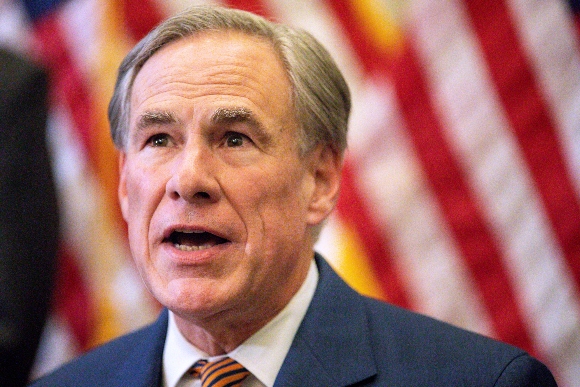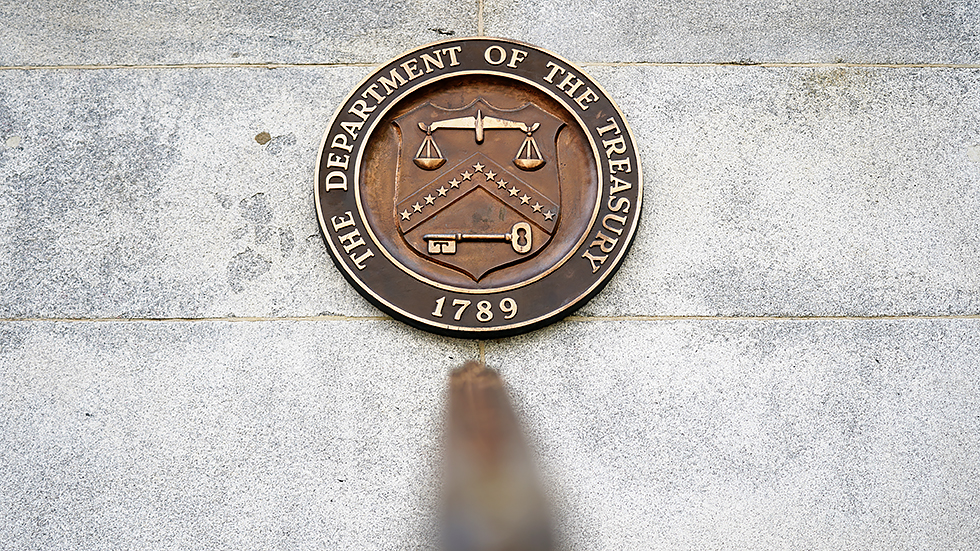On The Money — Big businesses side with Biden in Texas vaccine standoff

Happy Friday and welcome to On The Money, your nightly guide to everything affecting your bills, bank account and bottom line. Subscribe here: digital-release.thehill.com/newsletter-signup.
Today’s Big Deal: How the business sector is following Biden’s vaccine mandate despite the best efforts of Texas. We’ll also look at a surprise rise in retail sales and how the Biden administration plans to fight climate risk.
But first, the latest in the feud between … Prince William and William Shatner?
For The Hill, I’m Sylvan Lane. Write me at slane@digital-release.thehill.com or @SylvanLane. You can reach my colleagues on the Finance team Naomi Jagoda at njagoda@digital-release.thehill.com or @NJagoda and Aris Folley at afolley@digital-release.thehill.com or @ArisFolley.
Let’s get to it.
Big business vs. Texas on vaccine mandates

The fight over vaccine mandates between the White House and Texas Gov. Greg Abbott (R) is putting businesses in the middle. But many are picking the White House’s preferred policy.
- American Airlines and Southwest Airlines, which are both based in the Lone Star State, say they will defy Abbott’s order that no business in the state can impose a vaccine mandate on employees or customers and comply with President Biden’s mandate that all companies with at least 100 employees require vaccines or weekly testing for employees.
- Other companies based in Texas have already imposed vaccine mandates and have given no indication they will change their positions in the wake of Abbott’s executive order.
Witold Henisz, the Deloitte & Touche professor of management at the University of Pennsylvania’s Wharton School, said the conflicting orders are a “hassle.” He also said that most big corporations favor vaccine mandates, since it makes it easier for them to do business. That will put them on the side of Biden and against Abbott, even if they avoid advertising a political stance.
“The large companies — the airlines, the big retailers — they want to get to the point where it’s safe for their employees to come in. So they’re overall happy with the mandate, and this political appeal from Abbott is the last thing they wanted. It’s a hassle for them,” Henisz said.
Alex Gangitano explains here.
LEADING THE DAY
Retail sales rose in September, defying inflation and supply woes
Retail sales rose in September despite rising prices and supply shortages, according to data released Friday by the Census Bureau.
- Sales by retailers, including restaurants and bars, not adjusted for inflation totaled $625.4 billion in September, rising 0.7 percent from August’s revised total of $620.9 billion.
- The increase defied the expectations of economists, who projected sales to decline as supply chain snarls continue to raise prices.
“Consumers returned to in-person with back-to-school shopping in September after the Delta variant caused them to pull back in August. Delays to shipping items bought online are motivating a return to in-person shopping,” wrote Yelena Maleyev, economist at Grant Thornton, in a Friday analysis.
I break it down here.
ECONOMIC MELTDOWN
White House puts together climate finance strategy
The White House on Friday laid out a path for how it will protect the economy from climate risks.
In its “Roadmap to Build a Climate-Resilient Economy,” the Biden administration characterized climate-related risks as falling into two categories: physical risks from extreme weather and what it called “transition risk” as the nation shifts away from a carbon-fueled economy.
- The report outlines a range of pending and future actions meant to shield both the broader financial system and American households from climate-related risks.
- The administration highlighted the housing market, insurance and retirement funds as areas where Americans could personally feel the costs of climate change.
Rachel Frazin and I break it down here.
Good to Know

A report released by the Treasury Department Friday found that around $590 million had been paid by victims of ransomware to their attackers in the first six months of 2021, as such attacks skyrocketed.
Here’s what else have our eye on:
- The Treasury Department and IRS announced Friday that they have sent out $15 billion in payments to families as part of the fourth monthly child tax credit payment.
Housing advocates are warning that a once-in-a-generation opportunity to help close the widening wealth gap between Black and white families is in danger of being cut from a massive spending package as moderates look to reduce the overall price tag.
ON TAP NEXT WEEK
Tuesday:
- Deputy Treasury Secretary Wally Adeyemo testifies before the Senate Banking Committee on the Treasury Department’s sanctions policy review at 10 a.m.
Wednesday:
- The House Financial Services Committee holds a hearing on U.S. participation in international financial institutions at 10 a.m.
- A House Small Business subcommittee holds a hearing on international supply chain challenges at 10 a.m.
- The House Select Committee on the Climate Crisis holds a hearing on private sector business perspectives on climate action at 2 p.m.
- A Senate Banking subcommittee holds a hearing entitled “Protecting Companies and Communities from Private Equity Abuse” at 2 p.m.
Thursday:
- The House Financial Services Committee holds a hearing on the housing provisions of President Biden’s “Build Back Better” Plan at 10 a.m.
- The Senate Banking Committee holds a hearing on the impact of private equity landlords on the housing market at 10 a.m.
That’s it for today. Thanks for reading and check out The Hill’s Finance page for the latest news and coverage. We’ll see you next week.
Copyright 2023 Nexstar Media Inc. All rights reserved. This material may not be published, broadcast, rewritten, or redistributed.

